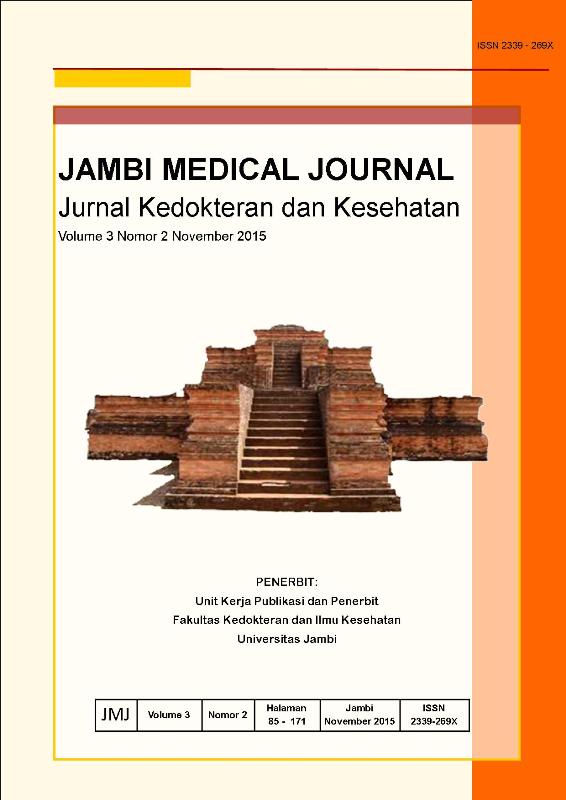Gambaran Pelaksanaan Problem-Based Learning Pada Mahasiswa Program Studi Pendidikan Dokter Fakultas Kedokteran Dan Ilmu Kesehatan Universitas Jambi
DOI:
https://doi.org/10.22437/jmj.v3i2.3086Abstract
ABSTRACT
Background: Problem-Based Learning (PBL) is a new learning strategy that is focused on students, where they learn based on problems. Faculty of Medicine and Health Sciences UNJA (FKIK UNJA) have implemented PBL as a learning strategy in the Competence based Curriculum since 2007, however, there are no studies that measure the implementation of PBL based on its four theories in FKIK UNJA.
Methods: This descriptive cross-sectional study design was conducted in April-May 2014 in FKIK UNJA. The number of respondents are 184 students from the class of 2010, 2011 and 2012. This research employed a questionnaire developed by Romauli et al. Then the average analysis is utilized to obtain the level of implementation of PBL based on the four theories.
Results: The implementation level of PBL in FKIK UNJA that based on learning constructive, independent, collaborative and contextual was moderate (1,94). The implementation level of constructive learning process based on class of 2010, 2012 was high (2,02 and 2,13) and the class of 2011 was moderate (1,98). The  implementation level of self-learning process based on the class of 2010, 2011 and 2012 was moderate (1,89; 1,87; 1,96). The implementation level of collaborative learning based on the class of 2010, 2011 was high (2,16 and 2,09) and the class of 2011 was moderate (1,97). The implementation level of contextual learning based on the class of 2010, 2011, and 2012 was moderate (1,78; 1,80; 1,82).
Conclusions: The implementation of PBL on students of Medical Education FKIK UNJA in each class and all students, have stimulated students to develop their knowledge, stimulate control of the learning process in the student itself, stimulate the interaction between students and stimulate the learning process which reflects the situation and environment, where the knowledge will be used.
Keywords: PBL, constructive learning, independent, collaborative, contextual, FKIK UNJA












